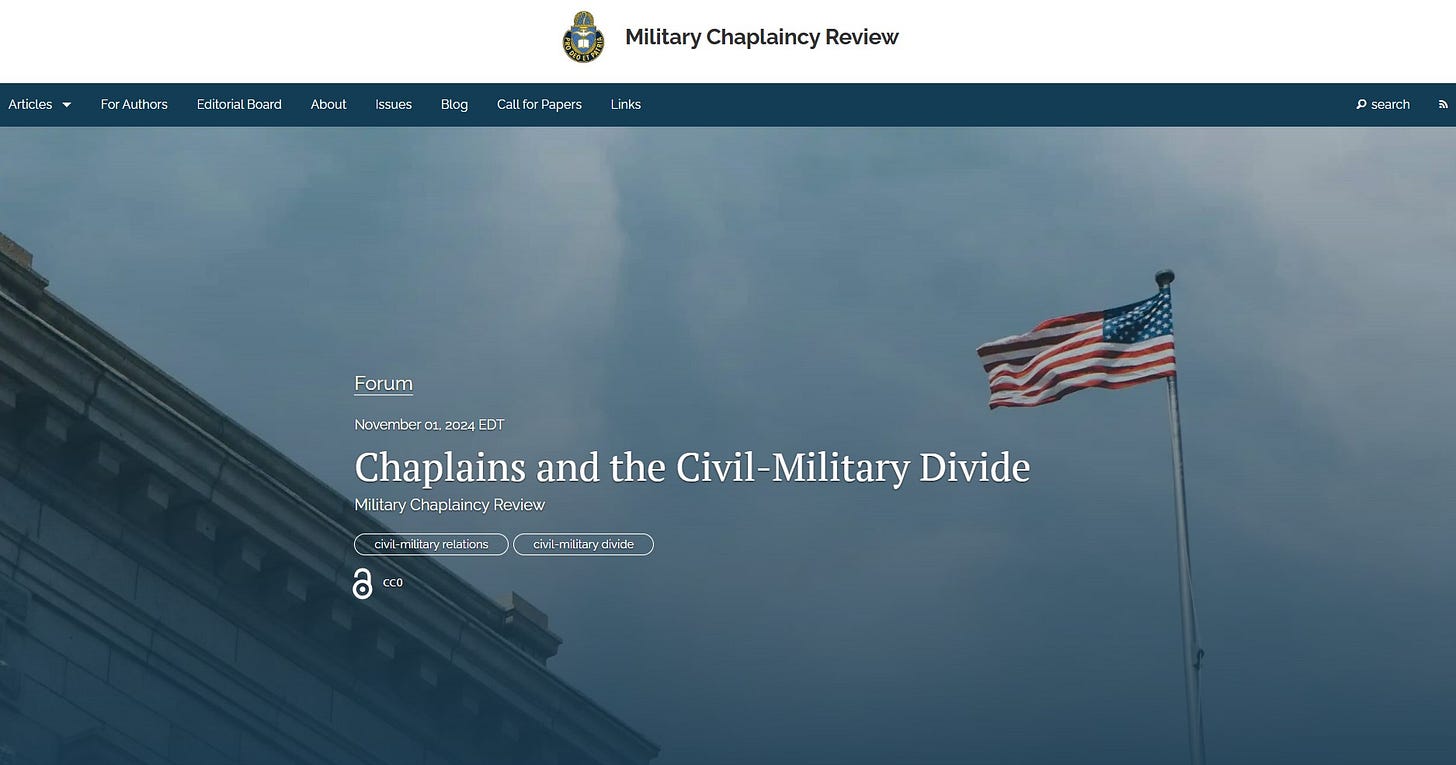Perspectives in the Forum
"The Forum" sparks conversation by asking the hard questions
“The Forum” is a part of the publication that makes Military Chaplaincy Review unique. The section is dedicated to conversation on issues relevant to the theory and practice of military chaplaincy from a variety of viewpoints. The Forum enacts professional conversation at a high level around complex topics that bear on military chaplaincy. To facilitate this conversation, contributors to the Forum all read the same piece of writing. Anchoring the Forum in a single text to which all contributors respond provides a common ground that usefully holds together the conversation. Each contributor writes a reflection of about 1,500 words. Those reflections, in turn, are responded to by the other contributors. This intricate organization is worthwhile because it allows for nuance that may not come through in other formats.
Not only, then, does the Forum host a professional conversation, but it also models how to do so. Talking in print, as it were, about topics at the heart of military chaplaincy in a well-rounded way is a good in and of itself, but it has the added benefit of showing that it can be done, how it can be done, and even how to do it.
Civil-military relations were at the heart of that discussion in the most recent Forum. Dr. Trent Lythgoe, Dr. Katherine Voyles, and Chaplain (Major) Jordan Henricks discuss the Texas National Security Review article “From Citizen Solider to Secular Saint: The Societal Implications of Military Exceptionalism” by Susan Bryant, Brent Swaney, and Heidi Urben. Each contributor brought their own professional experience and education to the conversation. Dr. Lythgoe’s training as a political scientist comes through in his writing; CH Hendricks’s work as the world religions expert at the United States Army Institute for Religious Leadership is on display in his; while Dr. Voyles brings her background in writing on the cultures of national security and national security in culture to hers. While each contributor gives voice to their own particular perspective it’s when these views are taken together that the Forum really comes into its own.
Photo courtesy of Mr. Tietje
Something like our Forum may work nicely for other publications looking to both host and model the possibilities of professional conversation. Our model can be scaled up or down in terms of length, and it can also be more or less academically formal. It could focus on a more popular, as opposed to academic, piece of Army or American culture as its centerpiece. MCR sets the Forum apart from book reviews and scholarly articles, but it’s also the case that robust discussions of an important new book or reflections on a recently published article may work nicely for publications that do not wish to make something like the Forum an enduring section. The Forum is central to what makes Military Chaplaincy Review a space for intellectually rigorous and much needed professional development through conversation.





a great model for dialogue and discussion that both challenges people with different perspectives while underscoring a shared community.